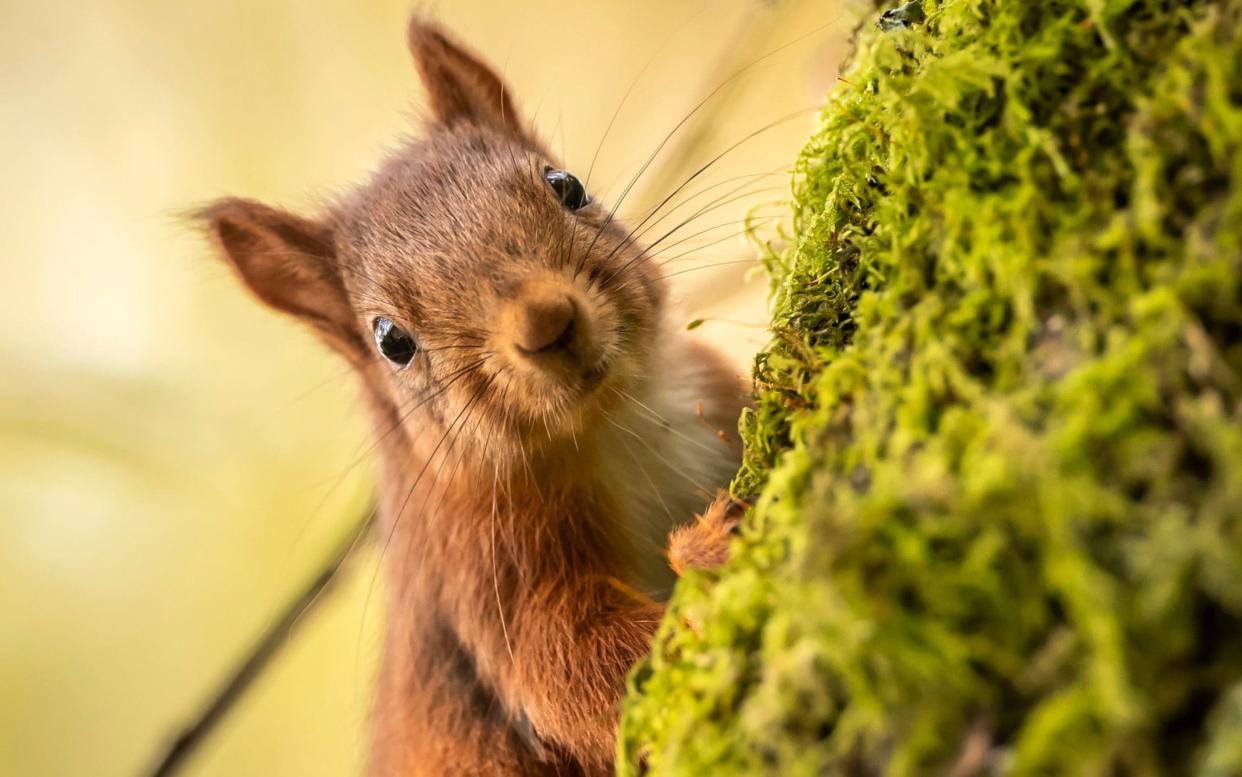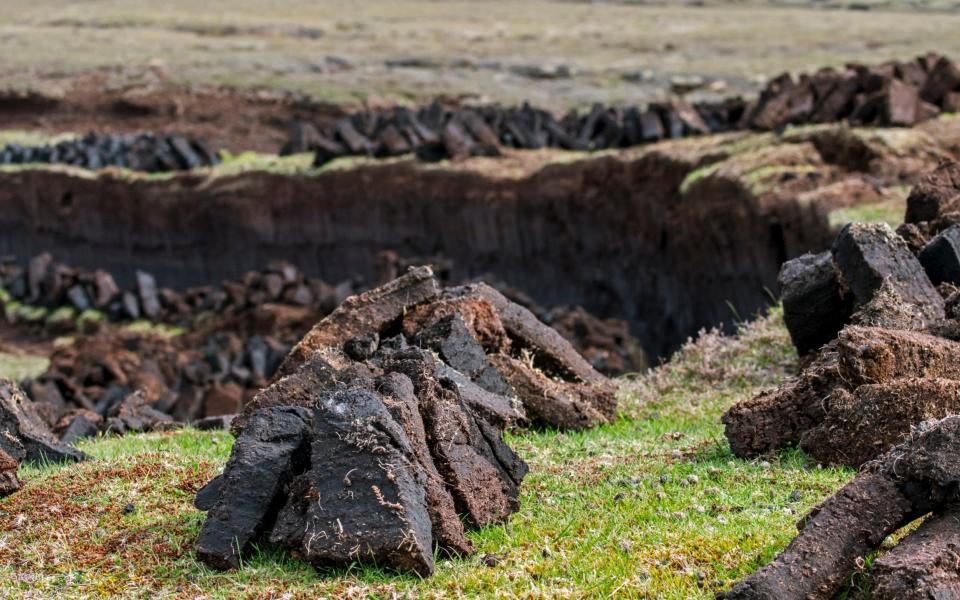Garden centres to be banned from selling peat compost in bid to limit carbon emissions

- Oops!Something went wrong.Please try again later.
Garden centres will be banned from selling peat-based compost under Government plans to protect the natural world and limit carbon emissions, the Environment Secretary will announce on Tuesday.
Legally binding targets to protect numbers of at-risk animals such as red squirrels and hedgehogs by 2030 will also be unveiled alongside the trebling of tree planting by the end of 2024.
A new reintroduction task force could see the return of wildcats, beavers and other animals lost to the UK.
"This is a huge step forward, and a world leading measure in the year of COP15 and COP26 as we build back greener from the pandemic," George Eustice is expected to say during a speech from Delamere Forest, Cheshire.
"We hope that this will be the Net Zero equivalent for nature, spurring action of the scale required to address the biodiversity crisis."
Under the plan, the Government will be expected to report annually on its progress in tackling the decline of wildlife in the UK, with 15 per cent of species now at risk of extinction, according to the 2019 State of Nature report.
The Government will also plan to restore 35,000 hectares of degraded peatland, which acts as a vital carbon store as well as helping to stem floods, but can emit greenhouse gases when it is in a poor condition or when it is dug up for horticulture.
Some 80 per cent of the UK’s 3 million hectares of peatland are considered to be in a degraded state and emit greenhouse gases equivalent to half of the country’s agricultural output, and campaigners called for the Government to go further in its restoration efforts.
Gardeners will be banned from buying peat-based compost by 2024 under plans to be consulted on this year, though campaigners have said the ban should come into force immediately.
The Government first raised the prospect of banning peat-based compost 11 years ago, and was forced to act after its calls for the horticulture industry to voluntarily end sales were ignored.
Only one in 20 garden centres have plans to end the sale of peat-based products and replace them with alternatives, according to a survey conducted by Wildlife trusts earlier this year.

"The Government’s intention to phase out the use of horticultural peat is excellent. Previous efforts have failed, so we hope the Government will expedite consultation to ensure that new regulations are agreed this year," Richard Benwell, CEO of Wildlife and Countryside Link, said.
Tree planting across England will grow to 6,000 hectares of new woodland by 2025, supported by a £500 million fund.
The Government wants 12 per cent of woodland in England, up from a current 10 percent, although its climate change advisers have urged it to go further.
"It is our ambition that all woodlands in England will improve the environment, acknowledging that our woods and trees are vital habitats," Mr Eustice will say.
"The iconic oak tree alone supports 2,300 species, of which 326 are dependent on oak trees for their survival.
"Trees are also important for sequestering carbon. Indeed woodlands currently sequester about 4 per cent of the UK’s gross emissions."

